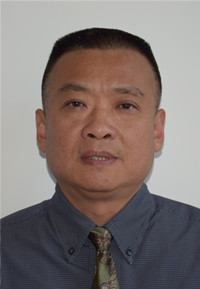

题目:Deformation and Formability of Aluminium Sheet Alloys
时间:2018年6月28日13:30
地点:80足球直播吧 F310会议室
邀请人:李大永教授(机电设计与知识工程研究所)

Biography
Peidong Wu is Professor in the Department of Mechanical Engineering, McMaster University, Canada. He got his B.Sc., M.Sc. and Ph.D. from Zhejiang University, China University of Mining and Technology, and Delft University of Technology, respectively. In 1994, he was awarded the prestigious Canada International Fellowship by NSERC to conduct research work at the University of Sherbrooke. In 1997, he joined Alcan International Limited, Research & Development Centre, where he became a Technical Leader in 2001. Dr. Wu joined McMaster University in 2006.
Since 1982, Dr. Wu has been working in the field of the mechanics of engineering materials and composites, especially in the constitutive modeling of large deformation of polymeric materials and polycrystalline metals. Together with Professor Erik van der Giessen, they developed a non-Gaussian full network model for rubber elasticity. At Sherbrooke and Alcan, Dr. Wu’s research focused on sheet metal forming, including formability, bendability and roping of aluminum sheets. At McMaster, Dr. Wu and his students developed a finite strain Elastic-Viscoplastic Self-Consistent (EVPSC) model for polycrystalline materials, and a new Twinning and De-Twinning (TDT) model for HCP materials including magnesium alloys. In 2009, he was awarded the International Journal of Plasticity Medal for excellent contributions to the field of plasticity, especially to the areas of constitutive modeling and metal forming. In 2011, he received the NSERC Discovery Acceleration Supplement.
Abstract
We start with listing limits to sheet metal forming. We then very briefly summarize the past and current research projects aiming for understanding these limits. We proceed by demonstrating how crystal plasticity theory can be applied to study sheet metal formability. Finally, the effect of the cube texture on sheet metal formability is investigated as an example. It is found that, while the ideal cube texture decreases formability, a spread about cube significantly delays the initiation of localized necking when a sheet undergoes biaxial tension. The effect of the cube texture on the predicted Forming Limit Diagrams (FLDs) is discussed in terms of the sharpness of the yield locus near equi-biaxial tension.
